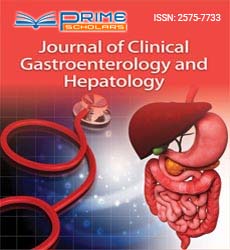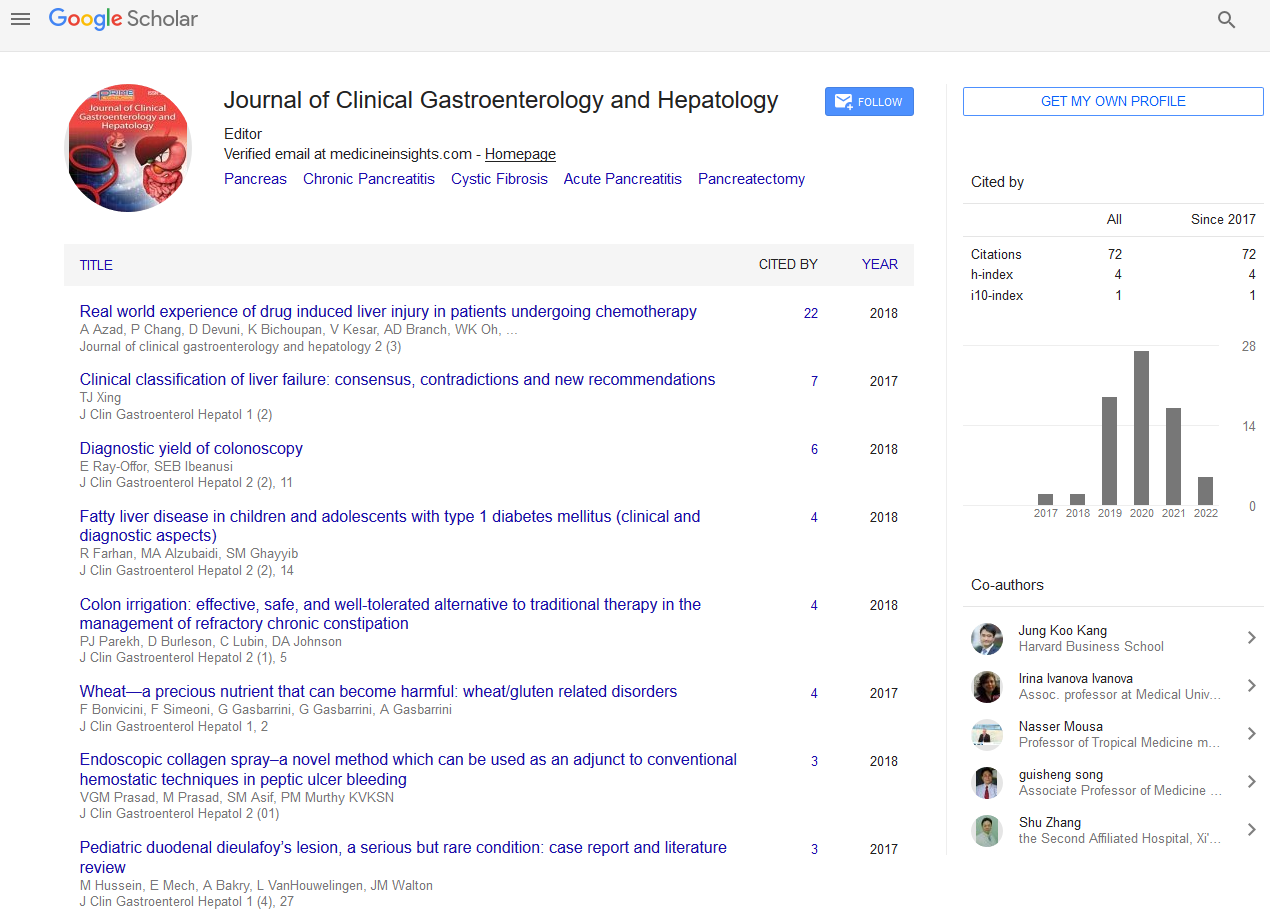Commentary - (2024) Volume 8, Issue 4
The Multifaceted Role of Bile in Digestive Health and Disease Management: Insights into its Composition and Functions
Kim David*
Department of Biochemistry, University of Health Sciences, USA
*Correspondence:
Kim David,
Department of Biochemistry, University of Health Sciences,
USA,
Email:
Received: 31-Jul-2024, Manuscript No. IPJCGH-24-21623;
Editor assigned: 02-Aug-2024, Pre QC No. IPJCGH-24-21623 (PQ);
Reviewed: 16-Aug-2024, QC No. IPJCGH-24-21623;
Revised: 21-Aug-2024, Manuscript No. IPJCGH-24-21623 (R);
Published:
28-Aug-2024, DOI: 10.36648/2575-7733.8.4.32
Description
Bile is a complex fluid produced by the liver and stored in
the gallbladder, playing a crucial role in the digestion and
absorption of dietary fats. Composed primarily of bile salts,
bilirubin, cholesterol, electrolytes, and water, bile serves several
essential functions that extend beyond mere fat digestion.
Understanding bile’s multifaceted roles provides valuable
insights into digestive health and the management of various
diseases. At its core, bile facilitates the emulsification of fats.
When dietary fats enter the small intestine, bile salts, derived
from cholesterol, act as detergents. They break down large fat
globules into smaller micelles, increasing the surface area for
pancreatic enzymes to effectively break down triglycerides into
free fatty acids and monoglycerides. Bile also plays a significant
role in the excretion of waste products, particularly bilirubin,
a by-product of the breakdown of haemoglobin from aged
red blood cells. The liver conjugates bilirubin with glucuronic
acid, making it water-soluble so it can be excreted in bile. This
process is crucial for preventing the accumulation of bilirubin in
the bloodstream, which can lead to jaundice. Additionally, bile
serves as a vehicle for the excretion of excess cholesterol, thus
maintaining cholesterol homeostasis in the body. An imbalance
in bile composition can contribute to the formation of gallstones,
which can obstruct bile flow and lead to pain and inflammation.
Moreover, bile’s composition is influenced by various factors,
including diet, medications, and health conditions. A high-fat
diet can enhance bile production, while low-fat intake may
reduce bile secretion. Certain medications, such as those
affecting liver function, can alter bile composition and its
secretion. In individuals with liver diseases, such as cirrhosis
or hepatitis, the production of bile may be impaired, resulting
in significant digestive issues and increased susceptibility to
fat malabsorption. Research has also highlighted the role of
bile acids as signalling molecules in the body. Bile’s interaction
with the gut microbiota is another area of growing research.
The gut microbiome, composed of trillions of microorganisms,
can influence bile acid metabolism, leading to alterations in
the bile acid pool. These changes can, in turn, impact host
metabolism and immune responses. A healthy gut microbiome
can help maintain balanced bile acid levels, whereas dysbiosis
may lead to excessive bile acid production or changes in bile
acid composition, contributing to inflammatory conditions
like inflammatory bowel disease. The clinical implications of
bile are substantial. Disorders related to bile production and
flow, such as cholestasis and biliary atresia, require careful
management to prevent complications. Therapies targeting
bile acid metabolism are being explored in various conditions,
including liver diseases and metabolic disorders. Moreover, the
relationship between bile and the gut microbiome opens new
avenues for potential probiotic treatments aimed at restoring
balance and promoting digestive health. In conclusion, bile is
more than just a digestive fluid; it is a complex entity that plays a
pivotal role in digestion, waste excretion, metabolic regulation,
and gut health. A deeper understanding of bile’s functions
and its interactions with various bodily systems is essential
for developing targeted therapies for digestive disorders and
metabolic diseases. As research continues to uncover the
intricacies of bile and its role in health and disease, it is likely
to pave the way for innovative approaches to treatment and
prevention in the field of medicine.
Acknowledgement
None.
Conflict Of Interest
The authors declare that they have no conflict of interest.
Citation: David K (2024) The Multifaceted Role of Bile in Digestive Health and Disease Management: Insights into its Composition
and Functions. J Clin Gastroenterol Hepatol. 8:32.
Copyright: © 2024 David K. This is an open-access article distributed under the terms of the Creative Commons Attribution
License, which permits unrestricted use, distribution, and reproduction in any medium, provided the original author and source
are credited.

